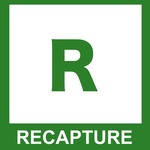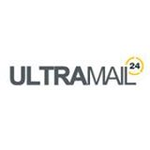Description

Recapture

Zender
Comprehensive Overview: Recapture vs Zender
As of my last update in October 2023, there isn't any specific information available on products or services called "Recapture" and "Zender" in the context you're referring to. However, I can offer guidance on how to analyze or evaluate similar products if they exist in specific industries or markets (e.g., email marketing tools, customer engagement platforms, etc.).
a) Primary Functions and Target Markets
When assessing any products, consider the following:
Primary Functions:
-
Recapture:
- Typically, products with a name like "Recapture" may deal with customer retention, cart abandonment recovery, or data analysis and recovery.
- Functions may include sending personalized emails to engage customers, recovering lost sales, or analyzing customer behavior to enhance retention strategies.
-
Zender:
- A product named "Zender" might suggest functions related to sending, communication, or dispatch (e.g., messaging platforms, email services, logistics coordination).
- Core functions could include streamlined communication tools, platforms for managing dispatch processes, or other operational services.
Target Markets:
-
Recapture:
- Likely targets ecommerce businesses, online retailers, or any business focusing on reducing cart abandonment and increasing retention.
- Industries: Retail, SaaS, digital products.
-
Zender:
- Potentially targets communication-heavy industries, companies needing dispatch solutions, or businesses aiming for effective internal and external communications.
- Industries: Logistics, customer support, retail chains.
b) Market Share and User Base Comparison
To determine market share and user base, you'd generally:
- Research industry reports, reviews, and market analyses.
- Compare customer testimonials and case studies.
- Look at metrics such as user growth rate, geographical reach, and number of businesses served.
c) Key Differentiating Factors
Several aspects might differentiate two products:
-
Feature Set:
- What unique features does each product offer?
- Consider user interface, integration capabilities, customization options.
-
Pricing Structure:
- How are the products priced? Subscription models, one-time fees, freemium, etc.
- Are there notable differences in cost for similar tiers?
-
User Experience:
- User feedback regarding ease of use, customer support quality, and overall satisfaction.
- Any specific features that users highlight as advantageous?
-
Technology and Integration:
- Support for integrations with existing business tools and platforms.
- Use of cutting-edge technologies or methodologies.
-
Scalability and Flexibility:
- Ability to scale with the user’s business growth.
- Adaptability to different business sizes and types.
Please check recent resources or reports for the latest details if these names refer to newly introduced products or services.
Contact Info

Year founded :
Not Available
Not Available
Not Available
United States
http://www.linkedin.com/company/recapturegroup

Year founded :
Not Available
Not Available
Not Available
Belgium
Not Available
Feature Similarity Breakdown: Recapture, Zender
To provide a feature similarity breakdown for products like Recapture and Zender (note: Zender specifics may vary, and the comparison assumes standard features found in similar tools), I will outline the aspects relevant to your query:
a) Core Features in Common:
-
Email Campaign Management:
- Both Recapture and Zender typically offer email campaign tools that allow users to create, manage, and analyze email marketing campaigns.
-
Automation:
- Automation features for sending emails based on user behavior or specific triggers are generally available in both products, making it easier to streamline marketing efforts.
-
Analytics and Reporting:
- Each tool provides analytics to track email performance, including open rates, click-through rates, and conversion metrics.
-
Segmentation:
- User segmentation capabilities to target specific groups within email lists is a standard feature to improve the relevance and effectiveness of campaigns.
-
Integrations:
- Both usually offer integrations with e-commerce platforms, CRMs, and other marketing tools.
-
Templates:
- A library of customizable email templates is typically offered to help create visually appealing emails quickly.
b) User Interface Comparison:
-
Design and Usability:
- Recapture: Known for a user-friendly interface that focuses on ease of use, especially for beginners. The design is typically straightforward, with easy navigation through campaign setup and automation workflows.
- Zender: Also aims to provide a user-friendly experience but might offer more advanced customization options within the interface, catering more to users who need detailed control over campaign elements.
-
Customization:
- Both interfaces generally support drag-and-drop editors for creating emails, though one might have a more intuitive editor depending on user feedback and recent updates.
c) Unique Features:
-
Recapture:
- Abandoned Cart Recovery: Potentially offers specialized features to target and recover abandoned carts in e-commerce settings, which might be less emphasized in Zender.
- Focus on Cart-Based Triggers: May have a stronger focus on e-commerce specific triggers and automations tailored toward recovering sales specifically from shopping cart activity.
-
Zender:
- Advanced Analytics Options: Might provide more extensive analytics capabilities, catering to users who need detailed insights into campaign performance.
- Content Management: Could have unique functionalities for managing and repurposing content across different channels, which extends beyond standard email features.
- Cross-channel Campaigns: May support more advanced cross-channel marketing campaigns that integrate email with social media and other digital platforms.
The specifics of how each feature operates can vary based on software updates and feature enhancements made after my knowledge update in October 2023. For precise and current details, reviewing the latest information from each vendor's website or tech reviews would be beneficial.
Features

Not Available

Not Available
Best Fit Use Cases: Recapture, Zender
To describe the best fit use cases for Recapture and Zender, let's break down each product, its strengths, and the scenarios in which each would excel.
a) Best Fit Use Cases for Recapture
Recapture is primarily designed for e-commerce businesses focusing on recovering lost revenues through abandoned cart recovery and email marketing automation. Its core features typically include cart recovery emails, post-purchase follow-ups, email list building, and targeted promotional campaigns. Here are some use cases where Recapture is a preferred choice:
-
Small to Medium-Sized E-commerce Stores: Businesses with online shops that want to increase their revenue through improved customer engagement and conversion of abandoned carts would find Recapture particularly beneficial.
-
Subscription-Based Services: Companies offering subscription services can use Recapture to handle failed payment recoveries, renewals, and upselling strategies.
-
Businesses with High Cart Abandonment Rates: If a business faces significant cart abandonment issues, Recapture provides targeted solutions to convert these into completed purchases.
-
Businesses Seeking Cost-Effective Solutions: Small business owners who require effective, yet budget-friendly, solutions for email marketing automation will find this tool aligns well with their needs.
b) Preferred Scenarios for Zender
Zender is a more versatile tool, potentially covering a broader aspect of communication needs, focusing on SMS, multiple messaging platforms, or alert systems. This adaptability makes Zender suitable in various scenarios, such as:
-
Enterprises and Large-Scale Operations: Organizations that require reliable and scalable messaging systems to communicate effectively with a large user base would benefit from Zender's capabilities.
-
Industries Relying on Instant Communication: Sectors such as healthcare, logistics, or emergency services that need to send out quick alerts or notifications favor using Zender for its immediate messaging infrastructure.
-
Marketing and Customer Engagement: Marketing teams that want to deploy cross-channel campaigns using SMS and messaging apps will find Zender's integrations facilitating broader reach.
-
Organizations with Complex Communication Needs: Companies that require API integrations and custom solutions to embed messaging functionality into their internal systems or customer-facing applications would leverage Zender's adaptability.
d) How Products Cater to Different Industry Verticals or Company Sizes
Industry Verticals:
- Recapture: Best suited for e-commerce and retail verticals where recurring communication is essential to convert potential sales and maintain customer relations.
- Zender: Fits well across diverse verticals requiring reliable messaging solutions — from fintech needing transaction alerts to transportation businesses coordinating with drivers and customers.
Company Sizes:
- Recapture: Ideal for small to medium enterprises (SMEs) that value specialized solutions for increasing sales through targeted email campaigns and cart recovery.
- Zender: Scalable for both SMEs and large enterprises due to its capacity for handling extensive communication needs across different platforms, allowing for growth and enhancement of customer interaction strategies without requiring changes in infrastructure.
Overall, the choice between Recapture and Zender depends significantly on the business's focus (e-commerce versus broader communication needs), the scale of operations, and the specific challenges they aim to address with these tools.
Pricing

Pricing Not Available

Pricing Not Available
Metrics History
Metrics History
Comparing teamSize across companies
Conclusion & Final Verdict: Recapture vs Zender
To provide a comprehensive conclusion and final verdict for Recapture and Zender, let's break down and evaluate which product offers the best overall value, outline the pros and cons of each, and provide specific recommendations for users trying to decide between them.
a) Considering all factors, which product offers the best overall value?
Best Overall Value: The product offering the best overall value between Recapture and Zender depends on the specific needs and priorities of the user. If the primary focus is cost-effectiveness and simplicity, Recapture might offer better value. However, if the user values versatility and advanced features, Zender could be more appealing. Generally, if we weigh versatility and extensive feature sets higher, Zender might edge out Recapture in overall value.
b) Pros and Cons of Choosing Each Product
Recapture:
- Pros:
- Cost-Effective: Generally priced lower, which can be appealing for budget-conscious consumers.
- User-Friendly Interface: Often noted for its intuitive setup and ease of use, catering well to beginners.
- Specific Focus: If it specializes in certain core functionalities, it may deliver exceptionally well in those areas.
- Cons:
- Limited Features: May lack advanced features or integrations found in competitors.
- Scalability: Might not be the best option for larger businesses or those with rapidly expanding needs.
- Customization: Could offer fewer customization options, which may be a limitation for some users.
Zender:
-
Pros:
- Feature-Rich: Typically offers a wider range of features and integrations.
- Scalability: More suitable for businesses with growth potential or more complex needs.
- Customizability: Offers greater flexibility which can be tailored to specific business processes.
-
Cons:
- Cost: Often comes at a higher price point, which might not be justifiable for some users.
- Complexity: The extensive features can make it complex, potentially overwhelming for inexperienced users.
- Learning Curve: Users may need more time to fully utilize all functionalities.
c) Specific Recommendations for Users Deciding Between Recapture vs Zender
-
Assess Your Needs:
- Users should clearly define their primary needs and objectives. If simplicity, ease of use, and low cost are critical, Recapture could be more suitable. For those needing a robust, feature-rich solution that can grow with the business, Zender may be the better choice.
-
Budget Considerations:
- Evaluate the total cost of ownership, including initial setup costs, monthly subscriptions, and any potential hidden fees. Cost-conscious users who do not require advanced features might find Recapture more aligned with their budget.
-
Scalability:
- If planning for growth or complex needs is important, consider Zender due to its scalability and the breadth of features, which can serve wider-ranging requirements.
-
Trial and Feedback:
- Take advantage of free trials or demo versions to hands-on test how each product fits into the business’s workflow. Assess feedback within your industry to determine common pain points and successes with each product.
-
Support and Community:
- Consider the quality of customer support and the availability of a community or resources. A strong support network is crucial for dealing with potential issues quickly and effectively.
In conclusion, the choice between Recapture and Zender ultimately depends on balancing the specific requirements, budget, and long-term growth plans of the user or organization. Careful evaluation and hands-on testing will help in making an informed decision.
Add to compare
Add similar companies




